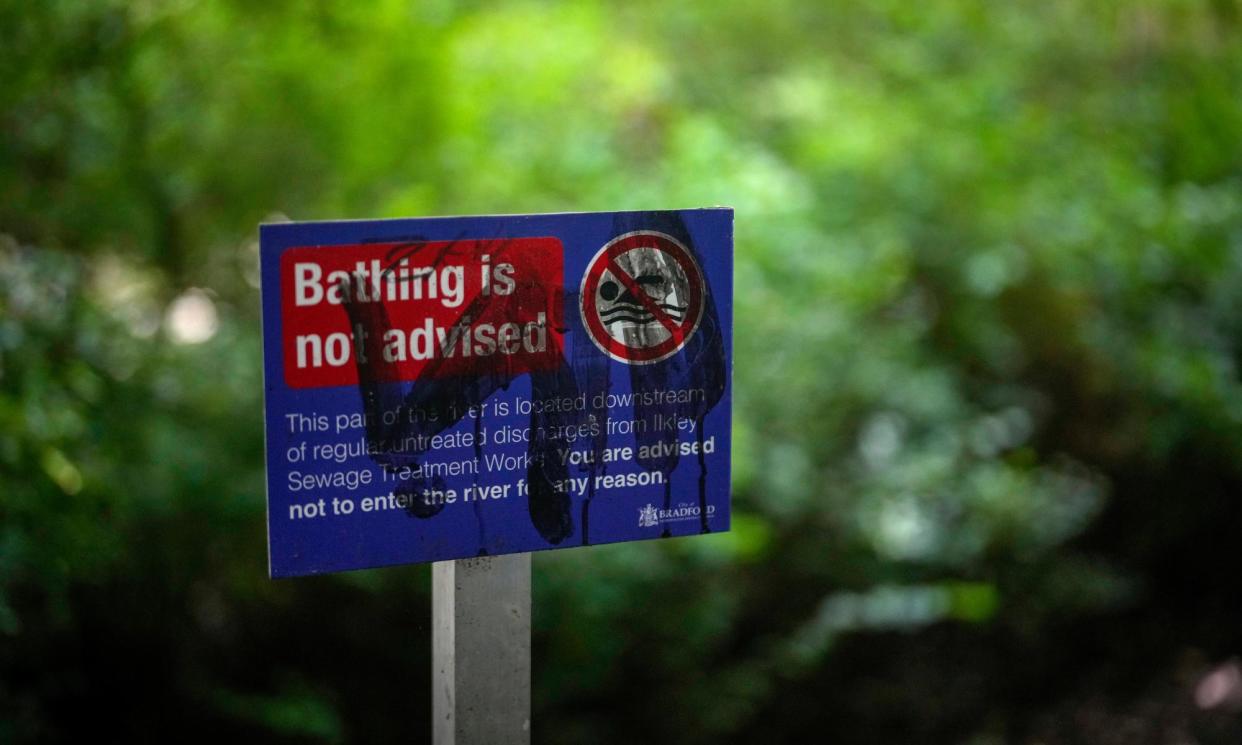Hospital admissions for waterborne diseases in England up 60%, report shows

Waterborne diseases such as dysentery and Weil’s disease have risen by 60% since 2010 in England, new figures reveal.
Analysis of NHS hospital admissions by the Labour party has found that the number of people admitted to hospital with diseases transmitted via waterborne infection has increased from 2,085 in 2010-11 to 3,286 in 2022-23.
The analysis follows widespread anger after record sewage spills were revealed this week. Environment Agency data showed that raw sewage was discharged for more than 3.6m hours into rivers and seas last year – a 129% increase on the previous 12 months.
Increased raw sewage in rivers means there is a higher risk of infections, campaigners argue, as people are more likely to come into contact with the bacteria in human waste.
Over the last year, for example, 122 people were diagnosed with leptospirosis (Weil’s disease), double the number in 2010. The disease, which can lead to liver damage and kidney failure, is spread through polluted water. Infected urine enters the mouth, eyes or a cut, usually during activities such as kayaking, outdoor swimming or fishing. Cases of typhoid, which is also spread through polluted water, rose from 445 to 603.
Labour’s shadow environment secretary, Steve Reed, said: “It is sickening that this Conservative government has turned a blind eye to illegal sewage dumping that has put thousands of people in hospital. To make matters worse, consumers face higher water bills while water bosses pocket millions in bonuses.
“Labour will put the water companies under special measures to clean up water. We will strengthen regulation so that law-breaking water bosses face criminal charges, and give the regulator new powers to block the payment of any bonuses until water bosses have cleaned up their filth.”
The analysis comes as the Oxford and Cambridge boat race organisers issued new safety guidance for the race on Saturday, warning rowers not to enter the water and to cover any open wounds, after high levels of E coli bacteria were found on the River Thames course.
Instead of the traditional celebration in which members of the winning team often jump into the river, the crews will be encouraged to wash themselves down at a dedicated cleansing station at the finish. Some rowers have reported becoming seriously unwell after dirty water has entered the blisters they get from holding the oars.
Alastair Chisholm, director of policy at the Chartered Institution of Water and Environmental Management, said: “Our research shows 86% of the public want water reformed under the next government. Our river crisis is not only impacting the health of nature, but it’s making people sick too. That has to change. We need urgent reform.”
Richard Benwell, chief executive of Wildlife and Countryside Link, said: “Pollution and nature loss are a public health disaster. Billions could be saved every year for the NHS by cleaning up filthy rivers, curbing air pollution and bringing nature back to life. All parties should make big polluters pay and ensure water companies invest in nature recovery for the sake of public health.”
Richard Walker, businessman and former Chair of Surfers Against Sewage, who was a Tory donor before switching in January to support Labour, said: “The way the Tories have allowed our coasts, rivers, and streams to become engorged with excrement is the perfect metaphor for the way they’ve treated the country these past 14 years. Labour’s plan will take the tough action required to get our vital utilities back to serving the public interest.
“Everyone deserves to enjoy our beautiful coastline and rivers without the fear of getting sick because some fat cat has been shovelling out dividends rather than investing in vital improvements.”
A government spokesperson said: “We have been clear the volume of sewage discharged into our waters is completely unacceptable and water companies need to clean up their act fast.
“We are already taking tough action to hold them to account, including demanding record levels of fast-tracked investment, ensuring a 100% monitoring of storm overflows and a quadrupling of water company inspections, and are currently consulting on a ban on water bosses’ bonuses, when criminal breaches have occurred.
“This is in addition to the stringent targets in place for water companies to reduce sewage spills – front-loading action at designated bathing waters to make the biggest difference to these sites as quickly as possible.”


